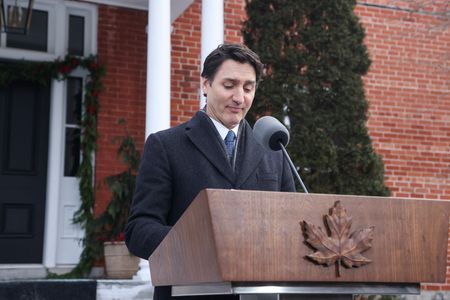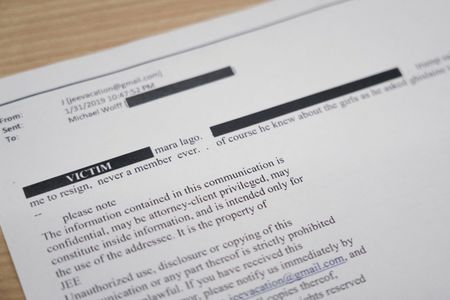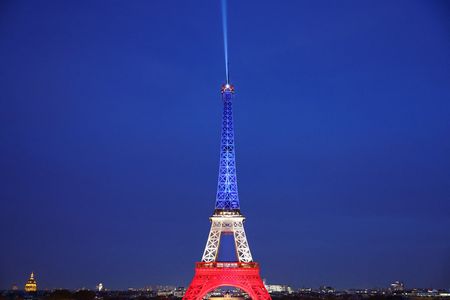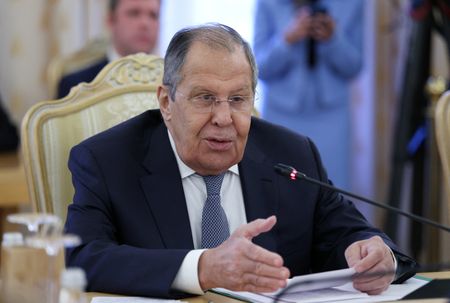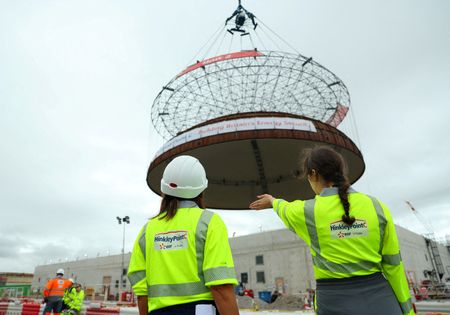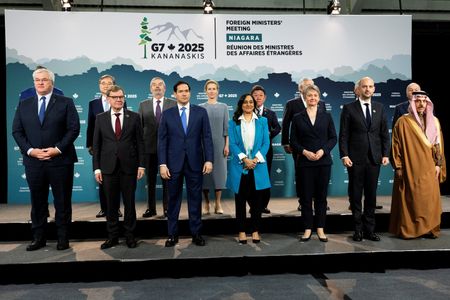By David Ljunggren
(Reuters) -Canadian Prime Minister Justin Trudeau announced on Monday that he will step down as the leader of the Liberal Party and as prime minister once his party chooses a replacement.
A string of polls over the last 18 months has shown the Liberals, suffering from voter fatigue and anger over high prices and a housing crisis, would be soundly defeated by the right-of-center Conservatives in an election that must be held by late October.
Here is a timeline of key events charting Trudeau’s fortunes over nearly a decade in Canadian politics:
OCTOBER 2013 – WINS RACE TO LEAD LIBERAL PARTY
Trudeau, the son of former Liberal Prime Minister Pierre Trudeau, won the leadership of the party when it was at an all-time low. The Liberals, out of power for more than seven years at that point, had been reduced to third place in the House of Commons in 2011 for the first time.
OCTOBER 2015 – LEADS PARTY TO VICTORY IN FEDERAL ELECTION
Trudeau’s Liberals, campaigning on a message of change and hope, won a majority of seats in the federal election, defeating the Conservatives. It was the first time the third-placed party in the House of Commons had ever won an election in Canada.
DECEMBER 2017 – FOUND GUILTY OF CONFLICT OF INTEREST
Canada’s ethics commissioner ruled Trudeau had broken conflict-of-interest rules by accepting a vacation, gifts and flights from the Aga Khan in 2016. It was the first time a prime minister had been found to have committed such a transgression.
FEBRUARY 2019 – SNC-LAVALIN SCANDAL
Former Justice Minister Jody Wilson-Raybould accused government officials of inappropriately pressuring her to help construction company SNC-Lavalin avoid a corruption trial. The affair prompted the resignation of Wilson-Raybould, and of Treasury Board President Jane Philpott. Losing two women from cabinet was politically damaging for a prime minister who had described himself as a feminist.
In August, the ethics commissioner ruled Trudeau and his officials had breached ethics rules. Trudeau took responsibility but refused to apologize.
SEPTEMBER 2019 – BLACKFACE SCANDAL ERUPTS AHEAD OF ELECTION
Shortly after the 2019 election campaign began, photos emerged of Trudeau wearing blackface when he was younger. Trudeau, a strong advocate for multiculturalism, apologized and said his life of privilege had come with a “blind spot.”
OCTOBER 2019 – LIBERALS REDUCED TO MINORITY IN HOUSE
In the Oct. 21, 2019 election, the Liberals were reduced to a minority in the House of Commons, obliging them to strike deals with opposition legislators to govern.
AUGUST 2020 – FINANCE MINISTER MORNEAU RESIGNS
Finance Minister Bill Morneau resigned amid friction with Trudeau over how much funding was needed to help Canada recover from the pandemic. Morneau had also come under fire for his ties to a charity tapped to run a student grant program.
SEPTEMBER 2021 – FAILED BID TO WIN BACK MAJORITY IN HOUSE
Elections in Canada are supposed to be held every four years, but Trudeau triggered a national vote for Sept. 20, 2021 in the hope that the electorate would reward his government for the way it handled the pandemic. The bid failed, and he was returned with a second successive minority.
JULY 2023 – POLLS SHOW LIBERALS STEADILY LOSING POPULARITY
Polls showed the Liberals only slightly trailing the Conservatives in the first half of 2023. In July, amid growing signs of voter fatigue, the gap suddenly widened, and it became increasingly clear a defeat was likely in 2025.
JUNE 2024 – LIBERALS SUFFER BAD DEFEAT IN SPECIAL ELECTION
In a clear sign of the Liberals’ growing unpopularity, the party lost one of its safest seats in a special election in Toronto. Trudeau made clear he would stay in office amid fresh questions about his future.
SEPTEMBER 2024 – KEY ALLY NDP WITHDRAWS AUTOMATIC SUPPORT
The New Democrats, who had kept Trudeau in power in return for increased social spending, announced they would withdraw their automatic support. This forced Trudeau to attempt to create new alliances to govern, but did not threaten to immediately trigger an election.
NOVEMBER 2024 – TRUMP PLEDGES TARIFFS ON CANADA, MEXICO
U.S. President-elect Donald Trump said he would immediately sign an executive order upon taking office in January imposing a 25% tariff on all products imported to the United States from Mexico and Canada, a grave threat to Canada’s export-dependent economy.
DEC. 16, 2024 – FINANCE MINISTER FREELAND RESIGNS
Finance Minister Chrystia Freeland resigned after Trudeau asked her to take a lesser position, taking away one of his most loyal allies over the past decade and the person who had been Canada’s lead trade negotiator during the first Trump presidency.
Freeland said she and Trudeau had clashed on issues including spending and how to handle possible U.S. tariffs.
DEC. 20, 2024 NDP PROMISES NO-CONFIDENCE MOTION
Singh said he would present a formal motion of no-confidence after the House of Commons elected chamber returns from a winter break in late January. The leader of the Bloc Quebecois, a larger opposition party, promised to back the motion and said there was no scenario where Trudeau survived.
JAN. 5, 2025 – TRUDEAU SAYS HE WILL STEP DOWN
Trudeau announced on Monday that he will step down once the Liberal Party chooses a replacement.
(Reporting by David Ljunggren and Promit Mukherjee in Ottawa; Editing by Frank McGurty, Caroline Stauffer, Rod Nickel and Alistair Bell)

